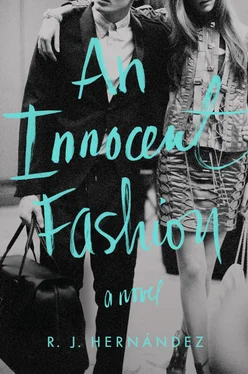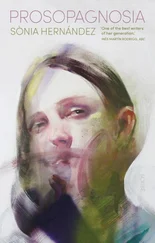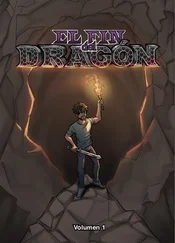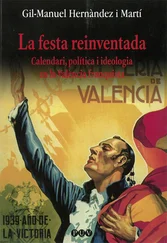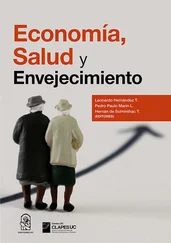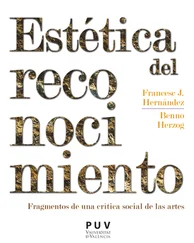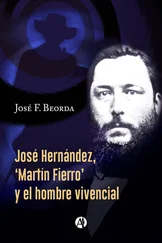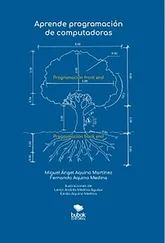Boasting a markdown of 75 percent, my first suit was unearthed from a bargain-basement sale by my mother, who then yanked a button off the sleeve and haggled for a greater discount. It was dust-bunny gray, considerably out of fashion with four buttons on the jacket and deep pleats down the length of the pants, yet I wore it to the wedding with a hundred times more dignity than that possessed by the groom himself, who during the cramped backyard reception was offered one too many Coronas by my father and knocked the three-layer cake off the folding table. My mother and my grandmother Walita, all my tías and my primas and other female relatives, could barely contain themselves: “ ¡Qué guapo! ¡Qué lindo ! What a smart and handsome gentleman!” I just sat there and smiled, because I already knew . I knew that in my suit, with my hands folded elegantly on my lap, I looked like more of a gentleman than any of their lumpy, unchivalrous husbands did. Not because my suit made me a gentleman, but because it made known to others those qualities which all along I had seen in myself.
The Monday after the wedding was the first day of my summer vacation, and while my parents were at work and all the other kids slept in and then watched reruns on TV, I put on my new suit and walked the familiar path to the district library. I had spent my last two summer vacations the same way, loafing around the library as casually as if it were my own living room, reading books until they kicked me out. Having long since graduated from fairy tales to “chapter books” like Peter Pan and Treasure Island, the district library had become my favorite place in Corpus Christi. It had two floors, and ten times as many books as my library in grade school; flooded with stories and sunlight, it was an oasis in the arid wasteland of my life and I preferred to be there all day than to ever borrow a book to read at home.
The crowning achievement of my reading list that summer was The Age of Innocence . I had already fallen in love with the Brontës, and Jane Austen, but Edith Wharton’s sentences were easily the most elaborate I had ever encountered. The library closed at six, and on many evenings I was awakened by the librarian, who had found me snoring with the open book aflutter on the table and a dictionary on my lap, as every paragraph had me looking up the meaning of words like “perfunctory” and “parvenu.”
It was the dead of summer in Texas, a dry, bristling heat, but I wore that suit every day. All I could think about was what a man I finally was; what the other kids would say on the first day of school. A growth spurt during those months ensured that by the time the school year actually arrived, my suit was no longer as dignified as it was laughably ill-fitted. But my conviction to wear it, despite the prominent nakedness of my wrists and ankles, was unshakeable.
Two weeks into eighth grade I was perched alone on top of a wooden table in the middle of the dusty, sun-baked lunchtime courtyard, beneath the shade of a rustling oak tree. Chatter all around attested to the preoccupations of my peers — restless recapitulation of last night’s TV shows and hushed rumors about Corpus Christi High kids who were “doing it” in the bathroom stalls — while I sipped from a grape soda, reading to myself from The House of Mirth , my second crack at Edith Wharton: “‘ I really think, Mother,’ she said reproachfully, ‘we might afford a few fresh flowers for luncheon. Just some jonquils or lilies-of-the-valley— ’”
“Ey, Elián!”
I looked up to find Cesar Montana running laps around my table. Cesar hadn’t changed much since our failed playdates — he’d only grown bigger and acquired the valuable skill of imitating the noise made by race car engines.
Now he came toward me and shouted, “Why you such a mariposa ?”
A ball of terror rose in my throat. “ Mariposa ” literally meant “butterfly,” but I knew Cesar meant it “the other way,” the way my father often did. To me it was preposterous that any man or woman should seek to be unlike a butterfly — one of the loveliest creatures in the world — yet I always paled when I heard it spoken at the kitchen counter. “ To think a married man could prefer pink socks over gray! ” my father would rant, breaking into another beer while I silently prayed he would never apply his favorite insult to me.
A small crowd was forming around me and Cesar — mostly boys, gaggling with open mouths while my tormenter flapped his arms, presumably like a butterfly.
“You heard me, mariposa ? Why you wear dis fuckeen suit? Readin dis stoopit book?” He stopped in front of me to jab his finger at the spine of The House of Mirth .
I gulped at his formless face, my eyes locked on a mole on his cheek from which a hair stuck out like an antenna, when suddenly, having gained extra gall from the attention of the growing audience, Cesar reached out and struck the bottom of my drink. The aluminum can hit me square in the nose, grape soda bursting over my suited chest. Fizzling purple liquid trickled onto my white shirt, while the can tinkled to the dusty ground at Cesar’s feet.
Eyes widened. Lower lips dropped. Then a dozen arms were flailing, and in a haphazard stampede of hooves the herd scrambled in the opposite direction. They all knew what was next — they must have seen it in my face — and so did Cesar, a bully who had taunted a caged animal, only to see the bars suddenly vanish.
In my head, the cacophony siphoned into a single buzz of ambient noise. I propelled myself into the air, book in hand. in slow motion observed a shifting of the ground below me. then I crashed onto Cesar’s back. He went tumbling beneath my body onto a tangle of upraised oak roots. The collision raised a cloud of ashy dust around us, and the din in my ears exploded once more into high-pitched wails: “Look! Look! ¡Elián va a matar a Cesar! ”
I raised The House of Mirth and delivered a backhanded crack! across Cesar’s face.
I had never felt more hatred than I did in that moment. I hated Cesar, I hated the way he looked and the way he spoke and the way he moved. I hated him so much that when I looked down I didn’t see a person at all, but everything that was ugly and wrong with life. Everyone who might hate me , just for being different. The fact that in Corpus Christi, and the whole world, there were thousands of people like him, and that ultimately, if they wanted to look down on me from the dumpster pedestal of their own mediocrity, there was nothing I could do about it.
His flesh yielded like dough as I hit him once more, on the side with the antennaed mole, and then, as he covered his face and voices screeched like out-of-tune violins, I struck him again! and again! and again!
From somewhere far away, a hand tried to pull me up.
I was suspended from school, but it didn’t matter. For once, my father was proud of me, and I spent the following two weeks at the district library, where I obviously preferred to be.
That such a perfect word as mariposa could be regarded as an insult in my hometown was confirmation enough for me: I would find a way to escape Corpus Christi, and in the meantime I would wear never less than a full suit, not to the grocery store, or the dentist, or to my grandparents’ house. I got my first job at the district library checkout counter, and with my limited funds I graduated to ownership of many suits — thrift-store acquisitions in different styles and colors — all tailored by my indulgent mother to fit the dimensions of my lanky frame, while my father, perhaps in denial, looked the other way.
Читать дальше
